The Symmetry and Precision of the Ramses Statues
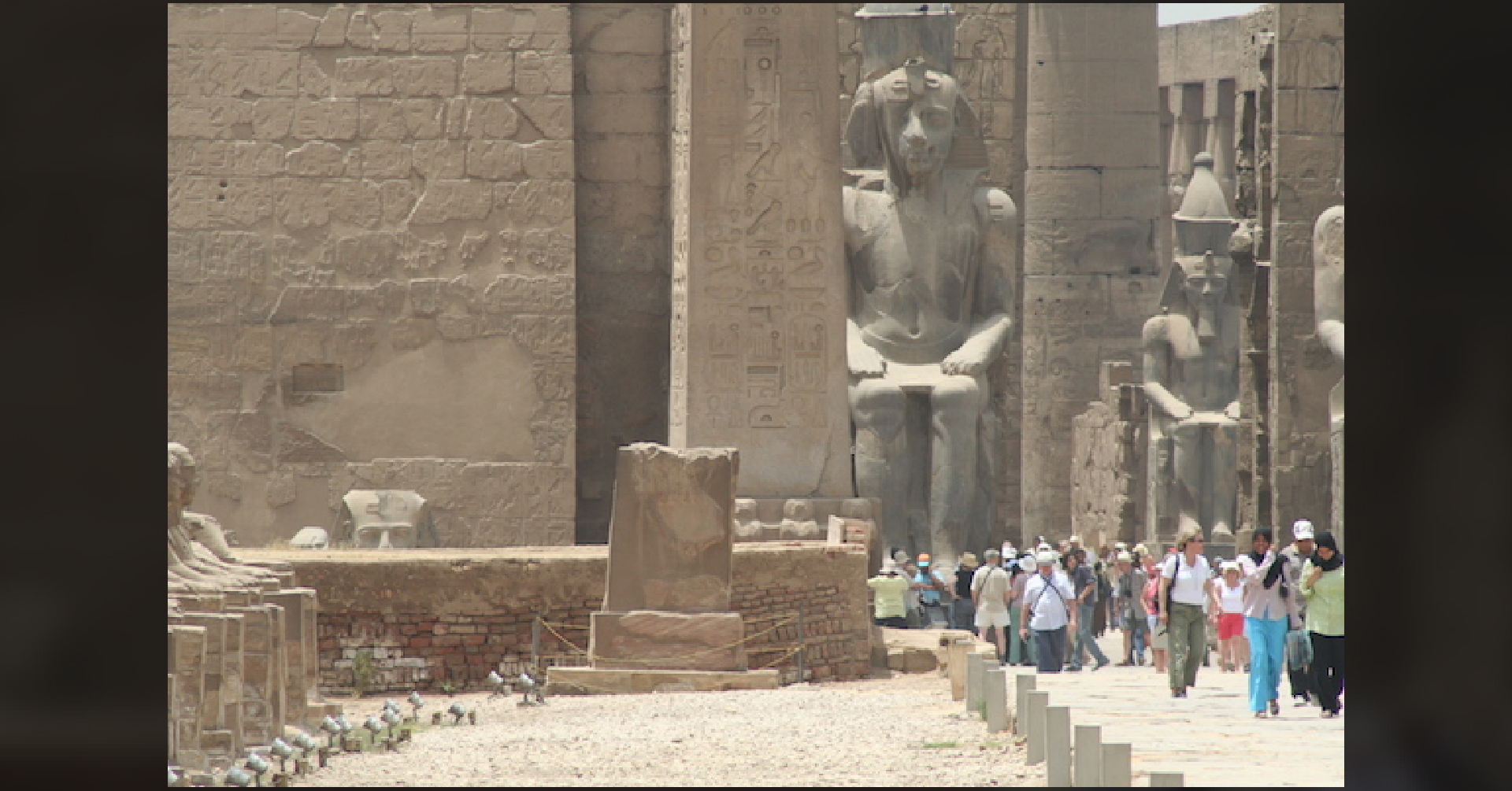
The Luxor Temple
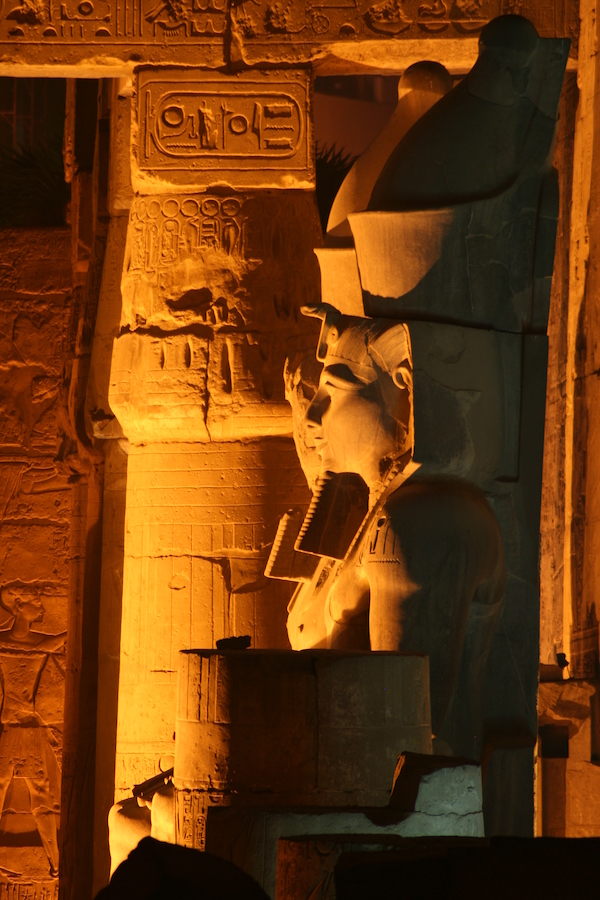
View of Ramses in the Temple from the Nile Corniche
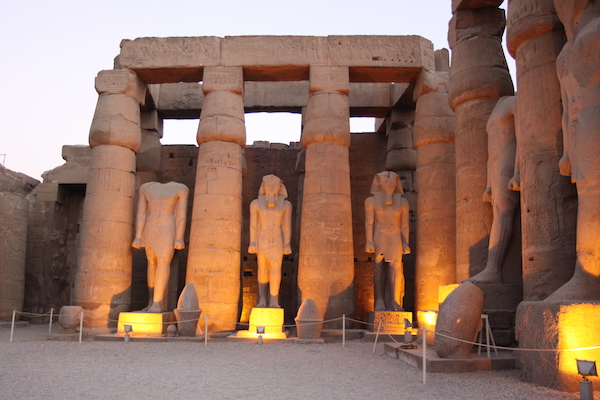
Entering the Ramses Hall, visitors are faced immediately with extraordinary features cut in hard granite
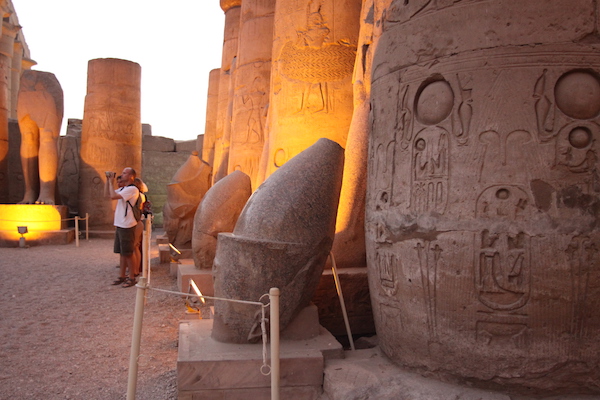
The White Crown of Upper Egypt toppled from Ramses head in antiquity
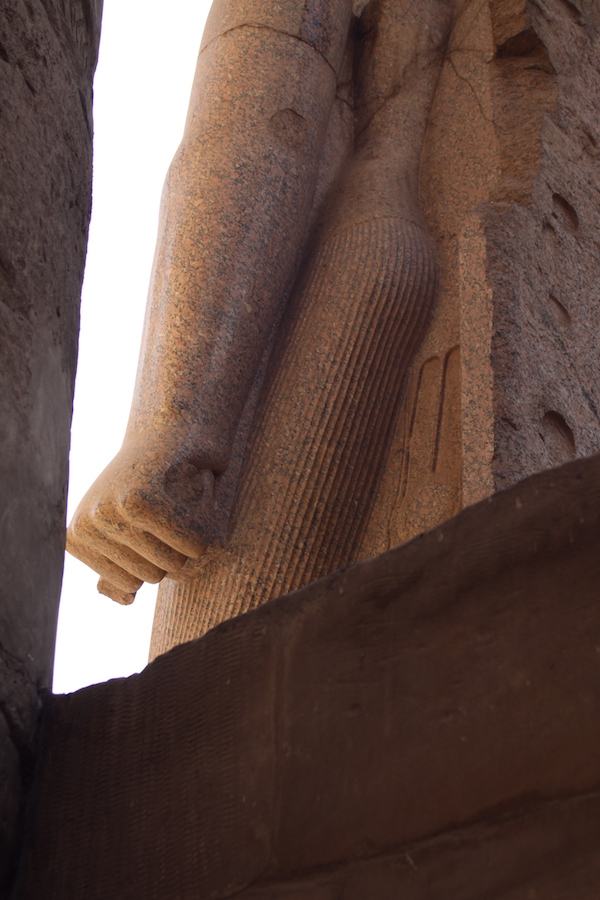
The noooks and crannies in the Ramses Hall reveal extraordinary attention to detail
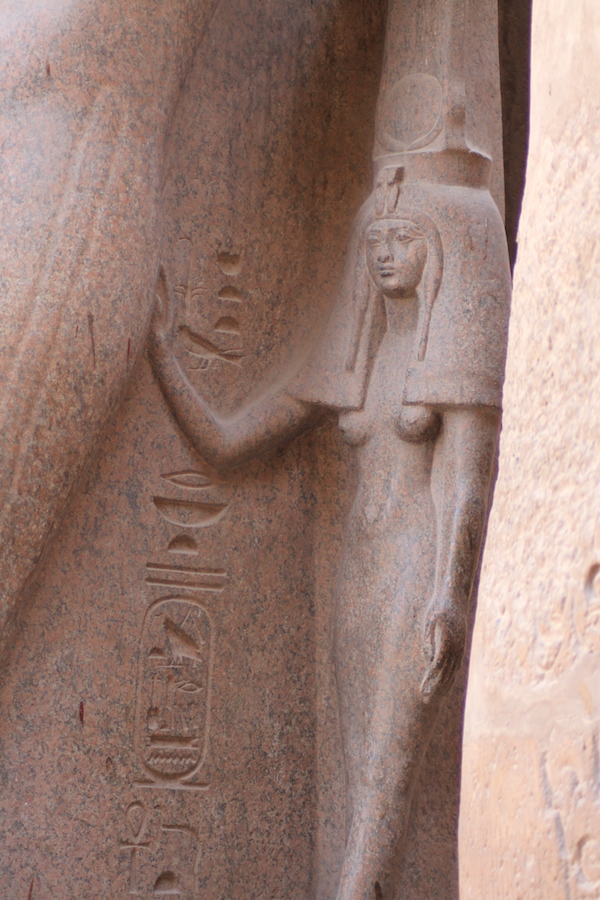
An “in relievo” figure of Nefertari pushing against the back of Ramses’ calf to keep him moving
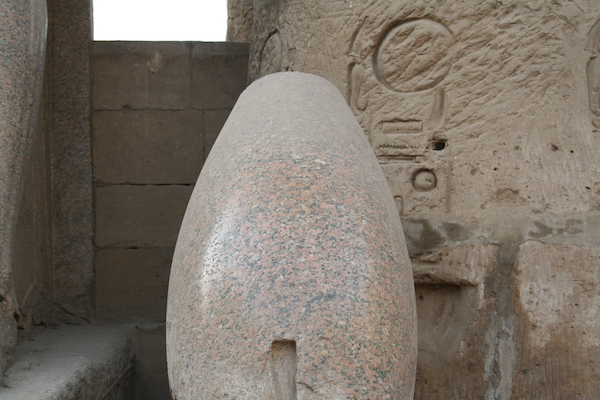
The White Crown: Smoothly finished and apparently to strict specification
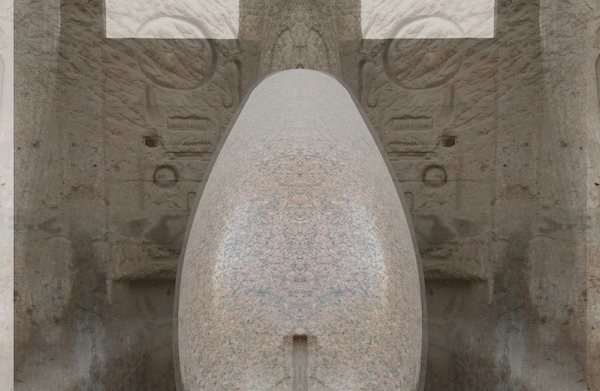
A copied reverse transparency to compare one side of the crown to the other
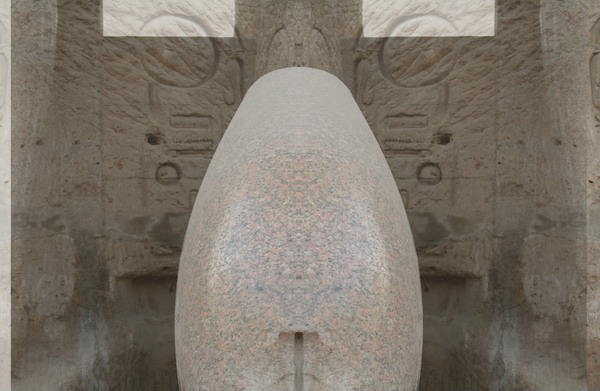
A surprising symmetry is discovered on the crown
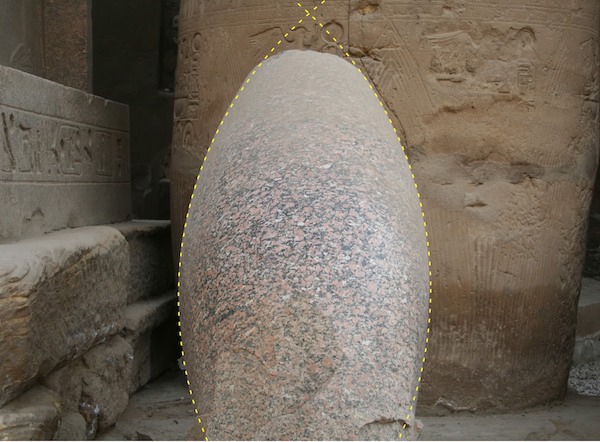
Comparing sides of a different crown to the same radius
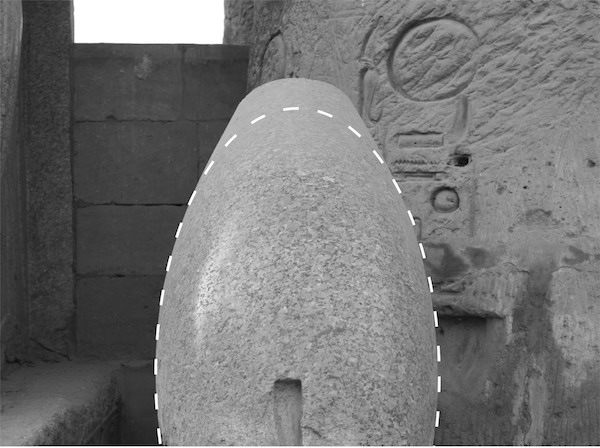
Is it possible that the crowns are crafted using the geometry of an ellipse?
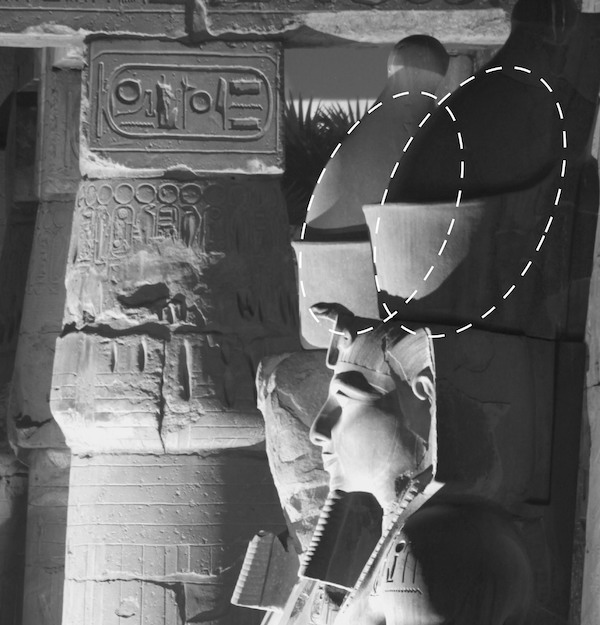
It appears that the crowns were modified ellipsoids
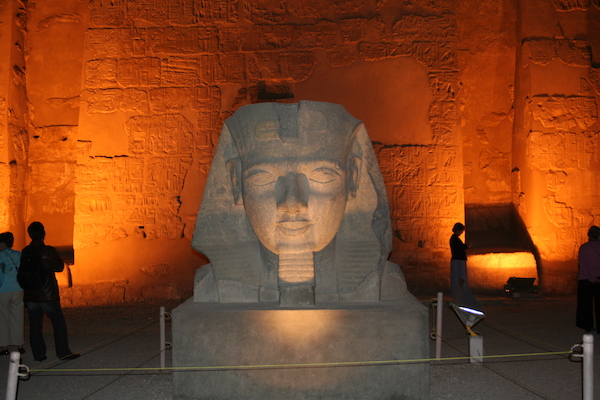
Coming face-to-face with Ramses outside the Temple
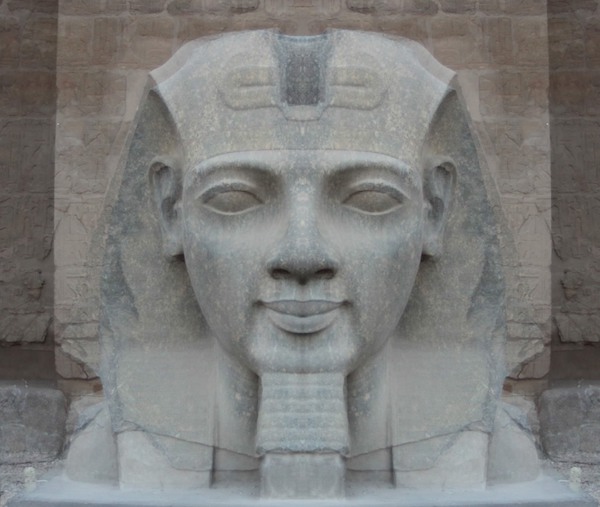
Creating a reverse image transparency and comparing one side of the face to the other
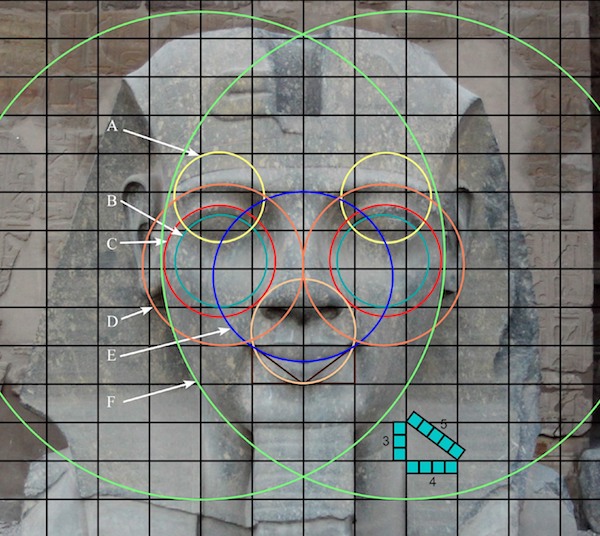
Using the extraordinary geometry of the mouth, a Pythagorean Triangle grid finds correspondences with other features of the face
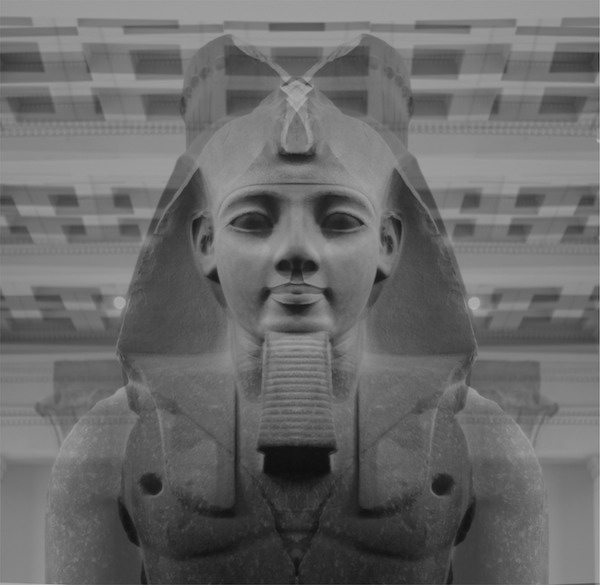
A different Ramses statue in the British Museum displays the same symmetry
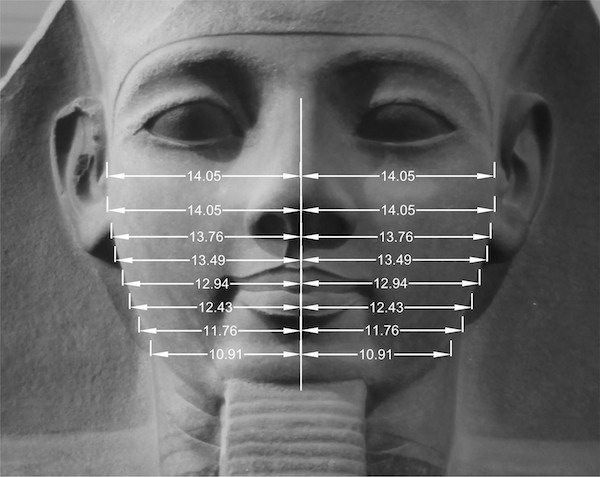
Applying approximate computer measurements to the jawline
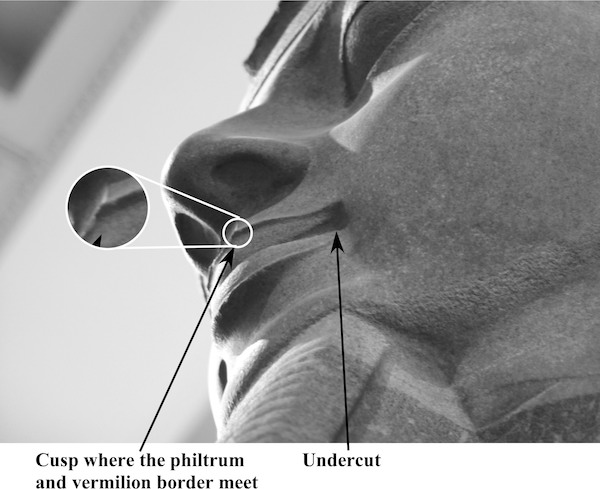
An error in the cutting where the tool dug into the corner of the mouth. Note that the lips were cut deeper to compensate
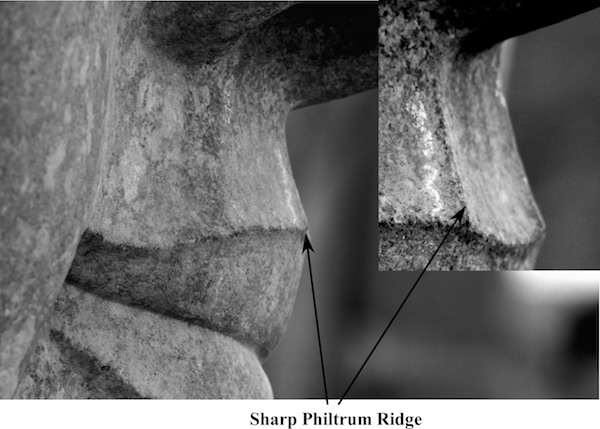
A close up of the mouth showing the rectangular toolmarks
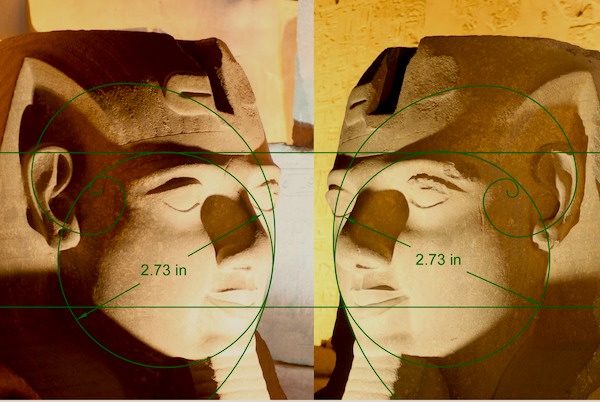
An approximate comparison right to left. As a reference point, both photographs were taken
by aligning the camera so that the tip of the nose grazed the outline of the cheek
Further studies need to be made of the Ramses’ statues using 3-D scanning equipment
